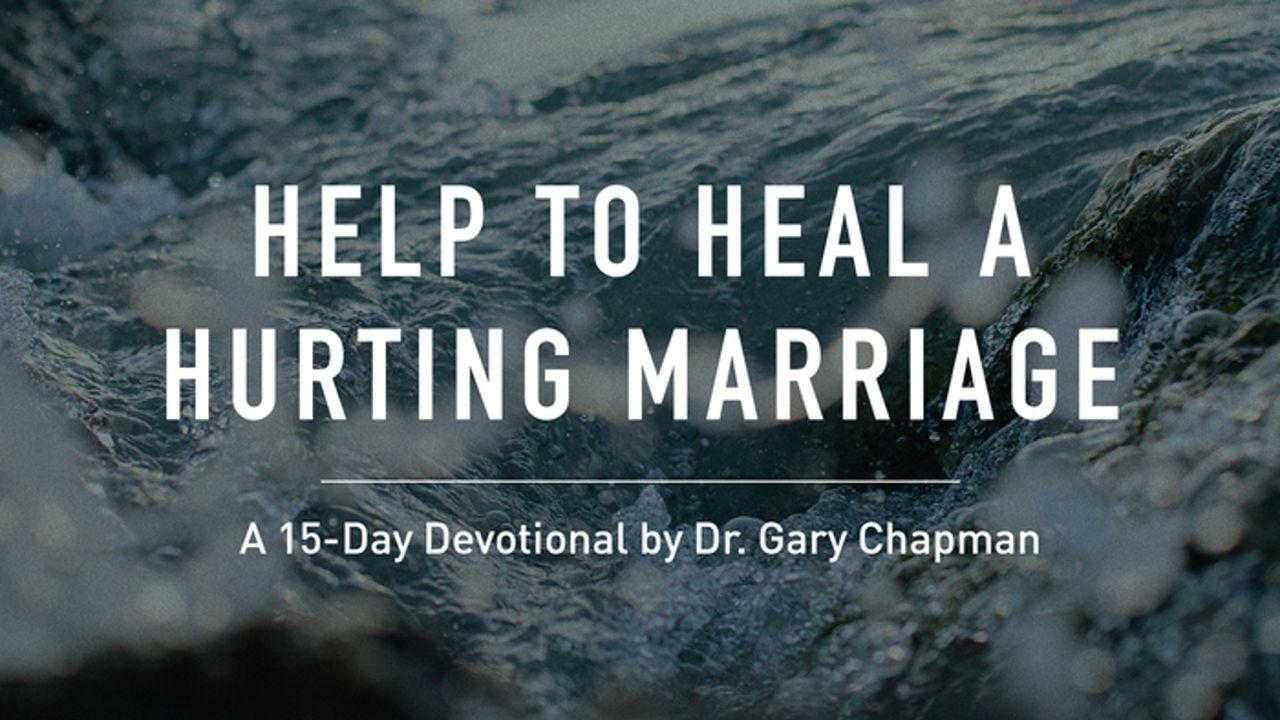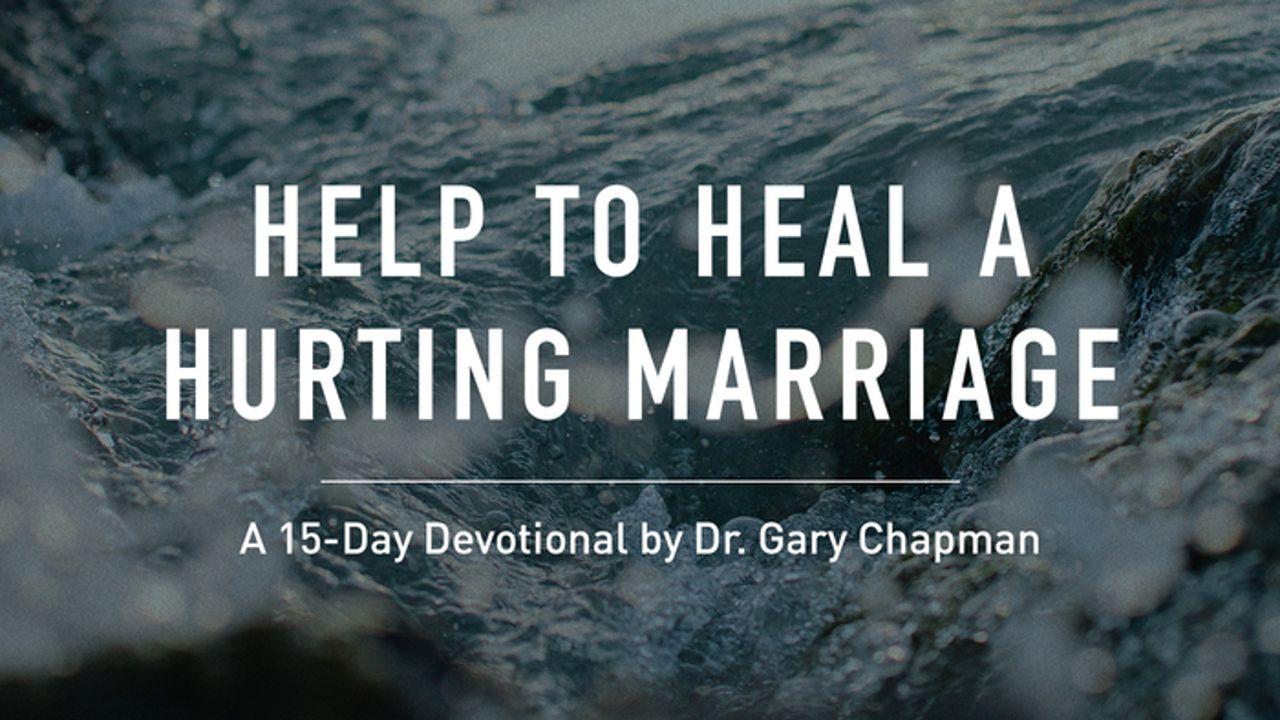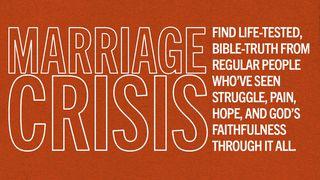Πληροφορίες σχεδίου μελέτης
Help For A Hurting MarriageΔείγμα

Devotion from Anger, Taming a Powerful Emotion by Gary Chapman
The Purpose of Anger
Try to remember the last time you experienced anger and ask, “Why did I get angry?” Chances are your answer will mention some injustice. Someone or something did not treat you fairly. Something was wrong. Your anger may have been directed toward a person, an object, or a situation, but in every instance you perceived that someone or something treated you wrongly.
The capacity for anger is strong evidence that we are more than mere animals. It reveals our concern for rightness, justice and fairness. The experience of anger is evidence of our nobility — our being made in God’s image — not our depravity. We should thank God for our capacity to experience anger. When one ceases to experience anger, one has lost her sense of moral concern. Without moral concern, the world would be a dreadful place indeed. So what is the purpose of anger? More to the point, what is God’s purpose for human anger?
I believe that human anger is designed by God to motivate us to take constructive action in the face of wrongdoing or when facing injustice. This is illustrated by God Himself.
In the Old Testament, God would typically send a prophet to proclaim to the people His displeasure with their evil deeds and to call them to repentance. If the people repented, God’s anger subsided and all was well. If they did not repent, God took additional action. (See Jer. 3:12–14; Jonah 3:5, 7–10.) God’s anger was expressed in positive action. When God used drastic measures it was for the ultimate good of His creatures. His holiness will not allow God to remain silent when His children are involved in evil activity, and His love always seeks to express His anger for the larger good of humankind.
In the New Testament, we find that Jesus too took positive, loving action against the evil that had stirred His anger. Perhaps the best known of these events is when Jesus saw the merchants buying and selling in the temple in Jerusalem, making what should have been a house of prayer into a den of thieves (Matt. 21:13; John 2:15, 16). On another occasion, when He healed a man on the Sabbath, he was angered by the Pharisees’ legalistic thinking when they criticized Him for doing good on the Sabbath (Mark 3:4–5).
What about us? Because, as we have seen, we bear the image of God, each of us has on some level a concern for righteousness, fairness and justice. Whenever we encounter that which we believe to be unrighteous, unkind or unjust, we experience anger. I believe that in God’s design, this anger is to motivate us to take positive, loving action to see to set the wrong right; and where there has been a relationship, to restore the relationship with the wrongdoer. Anger is not designed to drive us to do destructive things to the people who may have wronged us, nor does it give us license to say or do destructive things to our neighbors. Anger’s fundamental purpose is to motivate us to positive, loving action that will leave things better than when we found them.
The abolition of slavery in England and America came about because a significant number of people felt anger about social conditions. The story of William Wilberforce, a great man of faith, is familiar to many. For decades he waged a tireless crusade, delivering passionate speeches in Parliament detailing and decrying the evils of the slave trade. Across the ocean in the United States, a number of men and women looked at enslavement and said within their own hearts, This is not right . It took people motivated by anger at evil and injustice to prick the conscience of a nation.
Anger is like a red light flashing on the dash of a car. It indicates that something needs attention. Anger can be a powerful and positive motivator, useful to move us toward loving action to right wrongs and correct injustice — but it can also become a raging, uncontrolled force. The difficulty is that all these wonderfully positive purposes of anger seem to elude us in the heat of anger. We forget about setting things right and end up making them worse. We need to learn to process anger in a positive way.
REACT : What are some things in the world that make God angry? How can you direct anger to conform to God’s nature?
Κείμενο
Σχετικά με αυτό το σχέδιο

A 15-day devotional drawing from Dr. Gary Chapman's popular three book set, "Help to Heal a Hurting Marriage." Excerpts from Loving Your Spouse When You Feel Like Walking Away, Anger and When Sorry Isn't Enough.









